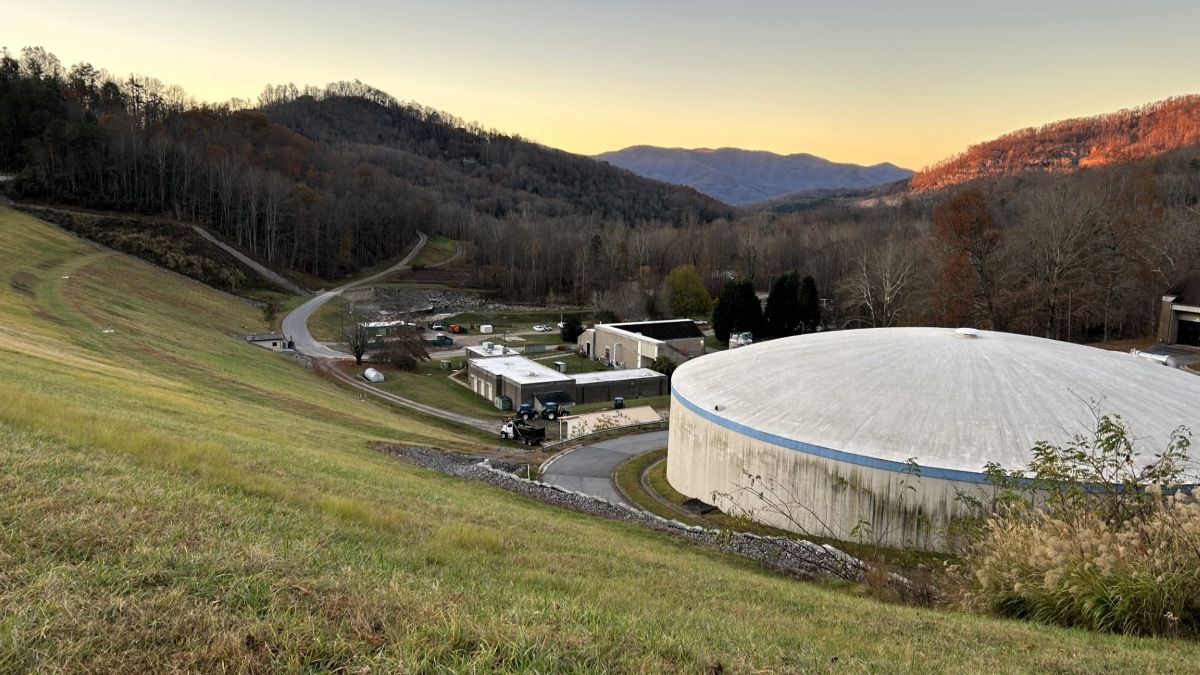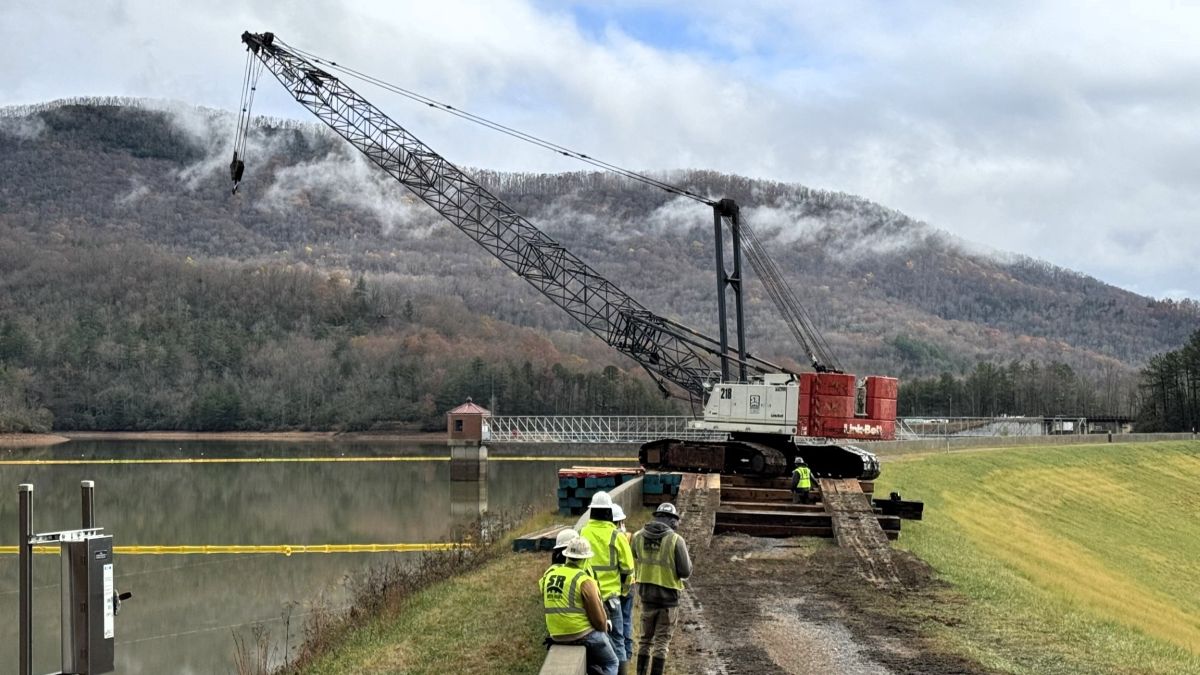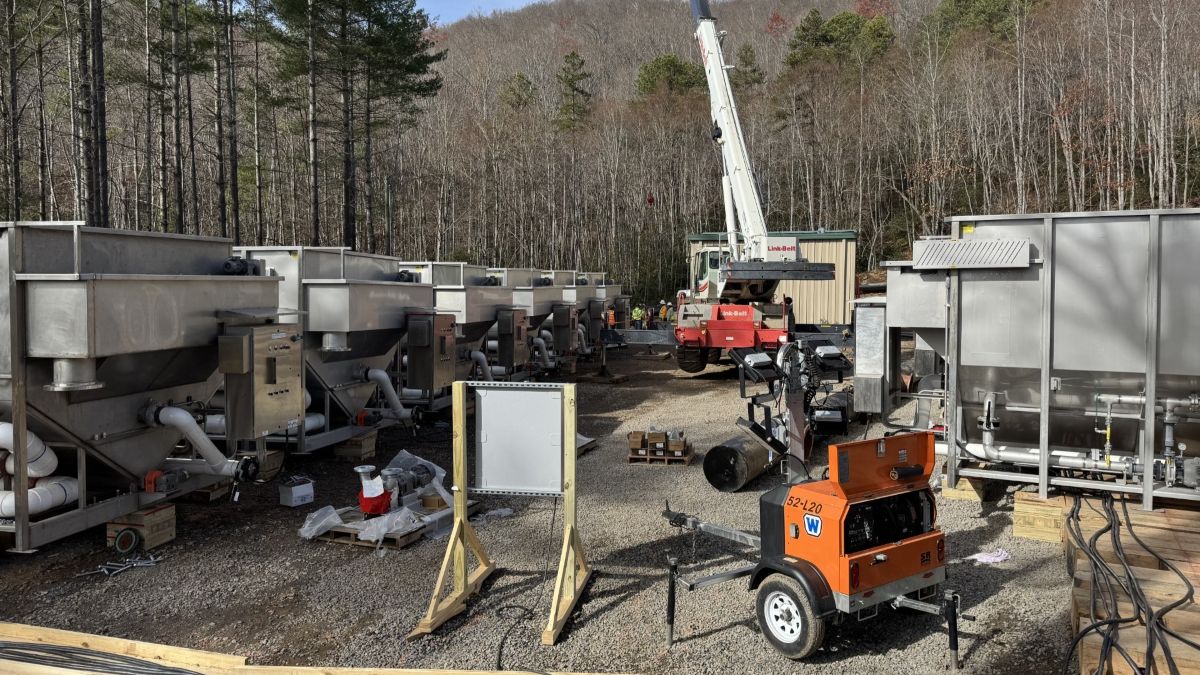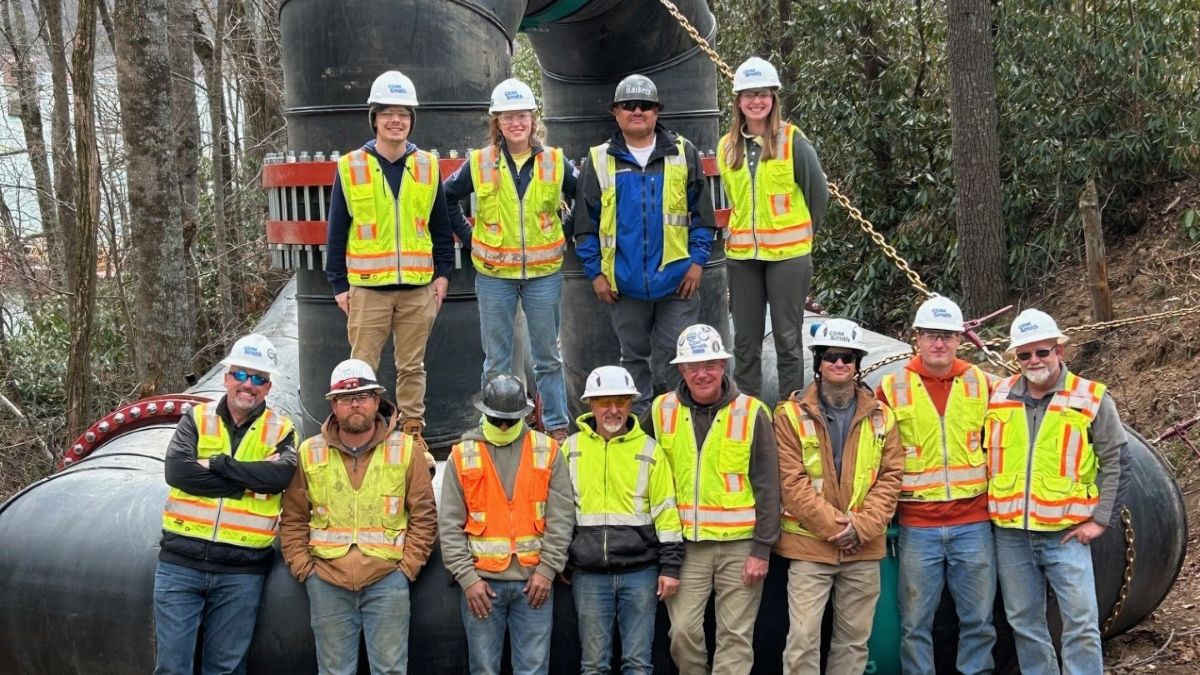UK alum helps build ‘one-of-a-kind' temporary water pretreatment system after Hurricane Helene
UK alum helps build ‘one-of-a-kind' temporary water pretreatment system after Hurricane Helene


On September 27, 2024, historic winds and rainfall from Hurricane Helene devastated North Carolina and the Western Appalachian region of the country, resulting in more than 100 reported deaths. Flooding and landslides caused damage to the primary and secondary water systems, leaving thousands without power, transportation, communications and clean water.
University of Kentucky alum Robert H. Frank II recalls when Hurricane Helene first made landfall.

“I remember thinking that the area is not built for this,” Frank said. “This was a thousand-year type of flood. We had to do something because clean water is essential.”
Since graduating in 1999 with his degree in Natural Resources and Environmental Science from the Martin-Gatton College of Agriculture, Food and Environment, Frank has gained more than 25 years of experience in managing construction and environmental remediation projects. Today, Frank is a senior project manager at engineering, construction and environmental consultant firm CDM Smith.
“We all need clean air, food, water and a safe place to sleep at night — all these things lead to a healthy life,” Frank said. "Environmental remediation is essentially taking a place that’s been contaminated, removing the pollutants using technology and making it usable again. At CDM Smith, we are essentially cleaning up the Earth one acre at a time.”
Frank had just joined the company before Hurricane Helene. Although Frank has managed a myriad of environmental remediation and emergency response projects over the years, nothing compared to when his response team showed up in Asheville, North Carolina on Nov. 11 last year.

“It was devastating,” Frank said. “The project was to basically design and construct a water pre-treatment system using rented equipment — to achieve the goal of delivering cleaner water to Asheville’s treatment plant. We built the system in 23 days and worked 24/7. This really has never been done before, but we knew that we had to get the job done.”
The US Army Corps of Engineers approved a $39.2 million contract with CDM Smith to operate the temporary pretreatment system at the North Fork Water Treatment Plant, Asheville’s largest plant and responsible for 70% of the city’s water.
The system will increase filtration capacity, benefiting over 100,000 residents in the area and resulting in a more robust system for future events.
For Frank, the project was “not just another job.” It was a huge accomplishment for his team but also for the city of Asheville’s residents.

“I’m extremely proud that we were able to complete this in less than a month — everybody felt connected to this project,” Frank said. “This effort took a team of unbelievably talented people coming together and getting all the resources we needed. We rose to the occasion to help the city of Asheville and became a really big family.”
Furthermore, Frank credits his experience in the NRES program at UK to achieving his career in environmental remediation and constructions which encompasses many of his passions — the outdoors, science, cleaning up the environment and helping communities thrive.
“My education at UK help set the table for working with my hands in handling hazardous materials,” Frank said. “We have to keep what land we have usable. If you can take a piece of property and make it usable again, then it is more beneficial for everyone.”
To learn more about the Natural Resources and Environmental Science program at Martin-Gatton CAFE, visit https://nres.ca.uky.edu.
###
Writer: Christopher Carney, Christopher.Carney@uky.edu
The Martin-Gatton College of Agriculture, Food and Environment is an Equal Opportunity Organization with respect to education and employment and authorization to provide research, education information and other services only to individuals and institutions that function without regard to economic or social status and will not discriminate on the basis of race, color, ethnic origin, national origin, creed, religion, political belief, sex, sexual orientation, gender identity, gender expression, pregnancy, marital status, genetic information, age, veteran status, physical or mental disability or reprisal or retaliation for prior civil rights activity.
Alumni & Philanthropy

